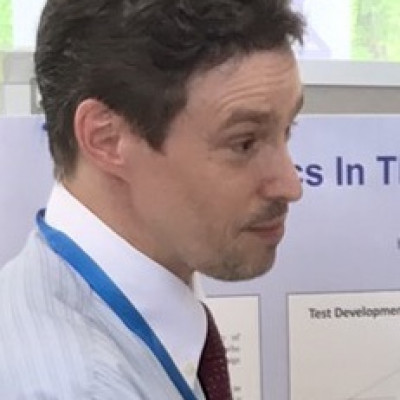Sessions / Location Name: 西 1 204
Physical Location
Location: 西 1 204
Cooperation to Raise Learner Awareness & Encourage Community Participation #3994
A content based language teaching (CBLT) course in Geography provides a useful platform for introducing topics such as the climate crisis, sustainability and sustainable development, ecosystem challenges, resource issues, and even issues related to the tourism industry. A background in environmental studies provides knowledge of the issues and their interconnectedness. However, the scope and depth to which the issues can be addressed is limited by time constraints, as well as the fact that instruction is being conducted in the learners’ second language.
One avenue currently being explored is to encourage learners to participate in locally available ‘citizen science’ activities. For the most part, these would not be engaged in using the learners’ second language, but their introduction and discussion in the classroom can potentially lead to learner involvement in them outside of and independently from the classroom. Positive effects on both the students’ lives and on their local community because of their participation can reasonably be anticipated.
The purpose of this presentation is to elicit opportunities to share and coordinate ideas with teachers with similar goals, regardless of background, which would generate synergy and allow all parties to benefit with regard to incorporating the issues into their teaching.
I let my EFL students take ownership of their learning, and THIS happened!! #3937
This poster will narrate the unfolding of an English communication course for first-year students at a National university in Japan where students have the opportunity to make meaningful choices regarding their learning. In the first class meeting, students participated in a self-assessment of their English using the CEFR-J can-do descriptors for spoken interaction and monologue (Tono & Negishi, 2020). Through the newly-gained awareness of their English proficiency, students expressed their desired focus for the successive class meetings. A majority of students wanted to prioritize explicit vocabulary learning and idiomatic language, while fluency training was a close third. Then, students worked with the instructor to draft a syllabus, schedule the class activities, and identify topics of interest. As a result, the course was divided into three units focused on self-expression, conversation strategies, and English for interaction on campus, respectively. For each unit, the first class meeting would be centered on vocabulary acquisition, the second on idiomatic expression, the third on fluency, and the fourth was dedicated to assessment. At a later stage, students requested a further focus on pronunciation, which was added to the third unit.
Tono, Y. & Negishi, M. (2020). Kyо̄zai – tesuto sakusei no tame no CEFR-J risо̄subukku. Taishukan.
English speaking opportunities and feedback outside a Global Issues class #3954
Following years of English education, Japanese learners of English commonly struggle with speaking and course evaluations requiring this skill. Several factors contribute to this, such as fear of mistakes, reluctance to speak, instruction focusing heavily on exam preparation, and time constraints for teachers to assess individual students’ speaking with large amounts of personalized feedback. This poster presentation examines how two recorded speaking tools can be used to offer additional opportunities for EFL students to use their English outside of the classroom and receive feedback. Using Flip and Speechcraft.io for speaking homework tasks, the presenter examined several recorded assignments for classes, of up to 18 students, taking a Global Issues class at a Japanese university. This presentation explains how the software was used and the feedback assisted with in-class topics and an end-of-course presentation. For each task, students were given opportunities to practice, record, and immediately review their own speaking with the option of re-recording before the final file submission. The presenter will also explain how the two forms of technology were implemented, how this approach was received by the students, and what were the limitations.
Examining the development of autonomy through learning beyond the classroom #3993
This poster reports on a study conducted at a university in Japan in the 2020-21 academic year, when all the courses were taught remotely due to the COVID-19 pandemic. With the pedagogical goal of helping students develop their autonomy, learning beyond the classroom was incorporated into compulsory English courses for second-year students. Besides the core part of each course, such as listening or reading, the students were encouraged to engage in English learning, following their own study plans and using resources of their own choice. The main purpose of this study is to investigate the impact of the students’ experience of learning beyond the classroom on the development of their autonomy by comparing the results of a questionnaire survey for measuring learner autonomy administered at the beginning and end of the one-year study. Additionally, records of students’ learning such as their learning reports were also examined for a more in-depth understanding of their learning process. As this study was unexpectedly and inevitably affected by the emergency remote teaching context, this study also discusses challenges that the students faced while learning with limited access to physical learning spaces, resources, their peers, and support from the teacher.
Fostering the development of sustainability competencies through the SDGs #3996
As the global community strives to address pressing environmental, social, and economic challenges, the integration of sustainability into educational contexts becomes imperative, as does the need to cultivate the sustainability competencies of students. This presentation provides an overview of the development of an elective English course taught over a semester at a private language university in Japan. Specifically, it illustrates how the Sustainable Development Goals (SDGs) can be effectively incorporated in foreign language education to foster the development of sustainability competencies, enabling students to connect language learning with real-world challenges and encouraging them to become active participants in achieving the SDGs. Additionally, the presentation highlights key factors that practitioners should consider when seeking to implement the SDGs and sustainability competencies into their classrooms.




